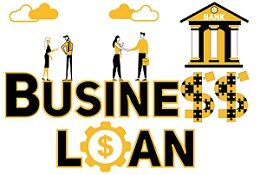Tax-Efficient Retirement Planning- Strategies for a Secure Future
There are many retirees who do not invest enough or save in order to be able to live off of the interest. Things such as pensions, social security, etc., are not enough. For this reason, they are going to have to start drawing down their investment assets.
However, there is a bit of a challenge here, which is that you need to do so in such a way that you are able to minimize the taxes on it. It is because whatever goes into the taxes is not going to come back.
Furthermore, tapping the assets also needs to be done in an order as it is going to have an impact on how long the money that you have for your retirement is going to last. Therefore, you need to do everything while being a little extra cautious.
In Columbia, there are specific rules and regulations associated with taxes. As a resident, you need to adhere to those rules in order to avoid any penalties or legal complications. You can also contact a tax accountant in Columbia to make things easier and better for yourself.
What are the strategies that one can use for a tax-efficient retirement plan?
In order to make tax-smart withdrawals, there are several things or steps that you can put to use to be able to make a tax-efficient retirement plan; let us look at some of those things here:
-
Try to start out with an RMD first:
Required minimum distributions can be put to use, especially if you are an individual aged seventy-three or older than that. This should be your first resort when looking for a retirement portfolio. It will also help you avoid penalties that might be there if you do not withdraw at all or if you are late for it.
The financial institutions can assist in calculating the required minimum distributions when the right time is available. Standard taxes will be applied to whatever sum you withdraw. You can also make use of a brokerage account and deposit your funds there. This is going to continue to grow in the future.
-
Interest and dividends:
Here, it would help if you started withdrawing dividends and interest from the accounts that are taxable; this needs to be done while you also maintain the original investment. It is also going to grow, and it might generate income for you in the future. With this being said, interest here will be taxed, just like ordinary income is taxed.
As far as dividends are concerned, they are going to be taxed at a relatively lower capital gains rate. It will depend on your income, and accordingly, the capital gain rate would be there. However, there are specific requirements here that need to be met.
-
Cashing out maturing bonds:
There are certificates of deposit, also called CDs and bonds, which many retirees depend on to get their regular income. There is also a question of whether you are still going to need cash after making use of your RMD, dividends, and interest. If that is the case, CD and maturing bonds are going to help next in the line.
It can generate steady income for retirees from their interest payments. This is also going to be relatively tax-efficient for you as you are not going to owe any taxes on the principal that is returned back to you.
Usually, it is recommended that you hold onto your certificates of deposit until the maturity date is reached. It is to avoid triggering taxes associated with capital gains.
Get help from a professional if needed!
While you can do these things if you do not have adequate knowledge, it is better to let a professional do these things for you. They know how to make use of different strategies to help you with taxes and come up with a tax-efficient retirement plan.


Leave a Reply
You must be logged in to post a comment.